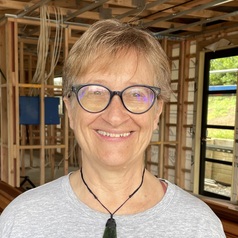The New Zealand government is in year three of a 10-year strategic plan to build a ‘planned and coherent’ education ecosystem – but it has failed to make any tangible progress. Early childhood is in a state of crisis, crying out for qualified staff, and parents are struggling to afford the cost of childcare worsened by the health concerns of the pandemic, and, yet, the acquisition of centres continue to promise profitable returns for investors.
The Ministry of Education’s strategic plan accepts that well-being is at the centre of a child’s learning and that more funding is needed for the sector. Published in 2019, the Early Learning Action Plan clearly states the importance of valuing the early years and aspiring to build ‘wrap-around health and social services.’
Most children under 6 in New Zealand attend early childhood centres. Early childhood education (ECE) is proven to be valuable for building on the dispositions intrinsic to each child that contributes to them being successful at school and beyond. But research demonstrates that the effectiveness of spending money to keep children at school as they grow will be very limited if the education system does not take significant steps toward working with a whole-system approach. Understanding well-being is complex and multidimensional, and current education policy in Aotearoa New Zealand does not interpret well-being in a sufficiently relational way.
Persistently allocating limited funding to various projects within different ministries has had limited effect.
The system is failing to ensure that all children are receiving the best start possible because governance of health and well-being is disconnected from education. Communities are stepping up to plug some of the gaps, but inspiring innovations from frustrated families should not replace government efforts. What will make the Ministry’s plan effective would be to view the child as a whole – instead of the child who needs education, or the child who needs health care, or the child who needs social services.
There are other models that our nation can learn from. One example is Colombia’s holistic and integrated approach to care and education makes strong connections between investment in an integrated early years policy and a fair society. Aptly named From Zero to Forever, the care and education of children in this programme in Colombia begins at birth and continues for their whole life. Starting with care for mothers and infants, it includes both the physical (immunisation and other aspects of physical well-being) and the educational (millions of books have been distributed to families, and teachers have been given extra training). For more than a decade now, this holistic system has improved the lives of millions of children. Former Colombian President Juan Manuel Santos Calderón explains the nation’s system grew from the provision of care for 400,000 to 1.2 million children between 2010 and 2016.
Back in Aotearoa New Zealand, a small increase in funding for ECE in this year’s budget will be welcomed, but what could make a bigger difference is if the government makes it an urgent priority to move beyond the narrow language of learning to the wider and holistic integration of health and education.
In so many instances, children are failed by the very schemes that, well-intended though they might be, fail to respond to the complex relationship between well-being and learning in our nation’s communities. A recent study in Hawke’s Bay has highlighted issues of food security connected to well-being in 41 primary and secondary schools where access to healthy food is an issue even though the schools participate in the Ka Ora, Ka Ako Healthy School Lunch programme.
The Ministry of Education, the Ministry of Social Development, and the Ministry of Health are separate entities and, as such, have separate foci, budgets and constraints on those budgets. They work in siloed environments, and, far too often, communication between them is limited or occurs too late to be of any use to the children and families they are attempting to help.
This is not the fault of any particular ministry; it is a problem caused by the disconnection of ministries in relation to the lives of children and their families. A philosophical turn is required, directed at reconceptualising governance in order that competing ministries might better conceptualise and communicate the varying needs and requirements for the education and care of young children.
In addition, the government could support primary schools to better understand and implement the holistic approach of the early childhood curriculum as children begin school. Primary teachers who better apply a holistic understanding of the child contribute more effectively to children’s sense of well-being and desire to learn. A recent survey by the Education Review Office highlighted that those strong connections between ECE and primary were very effective for children’s well-being.
The ministries responsible for the care and education of our youngest children will achieve more together through a holistic approach to understanding the child and their community.





